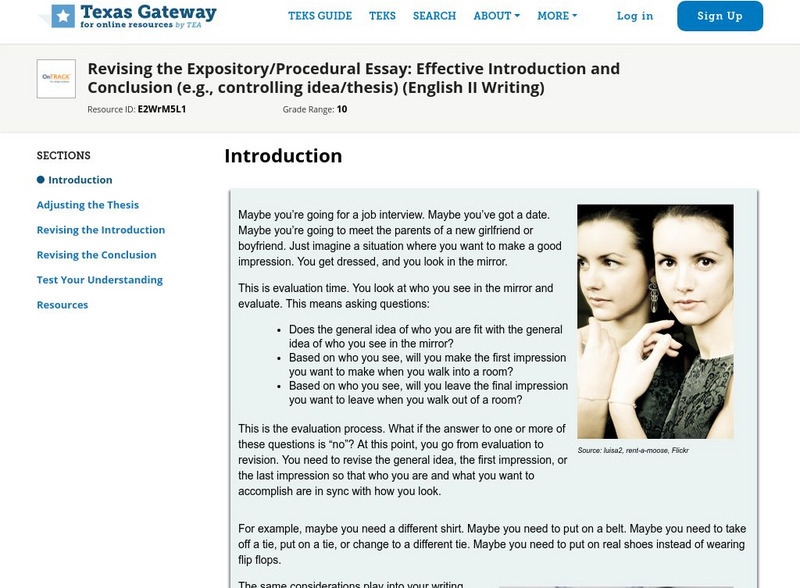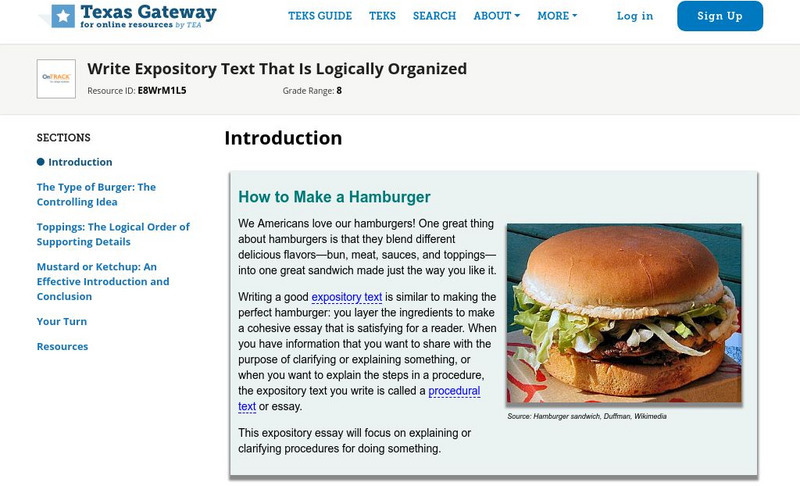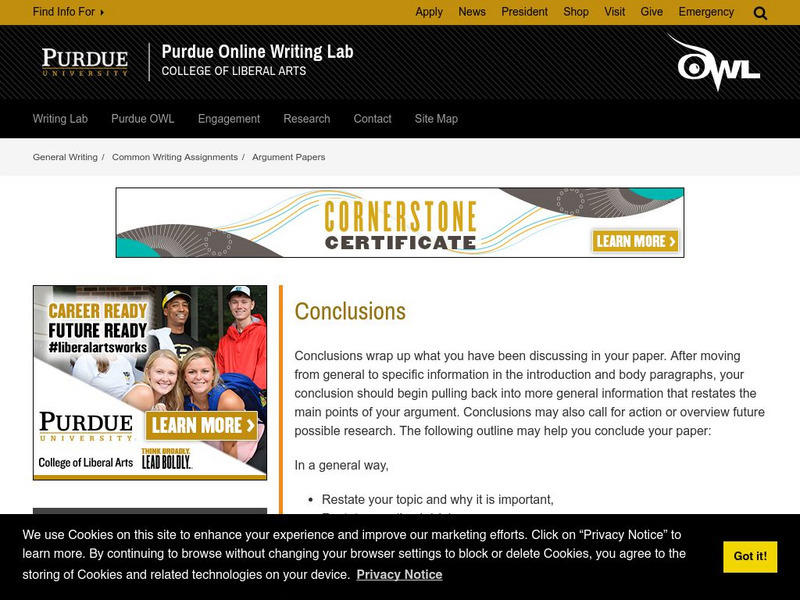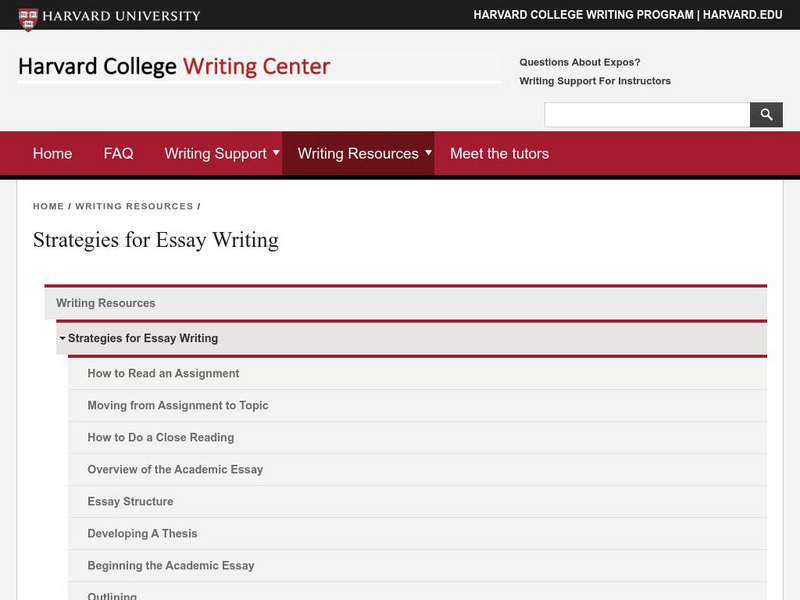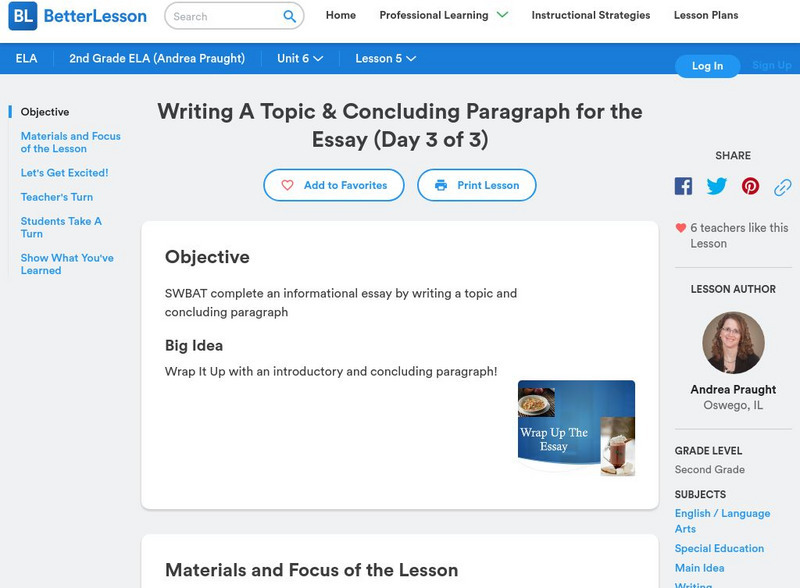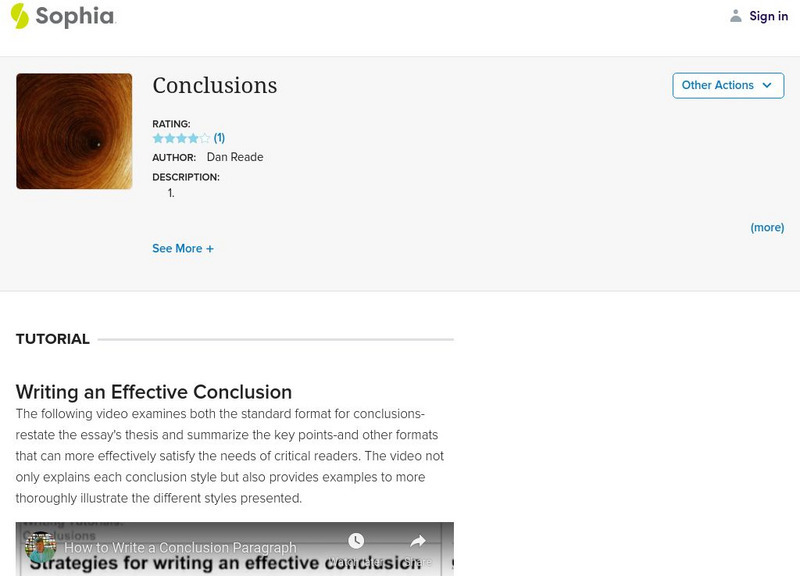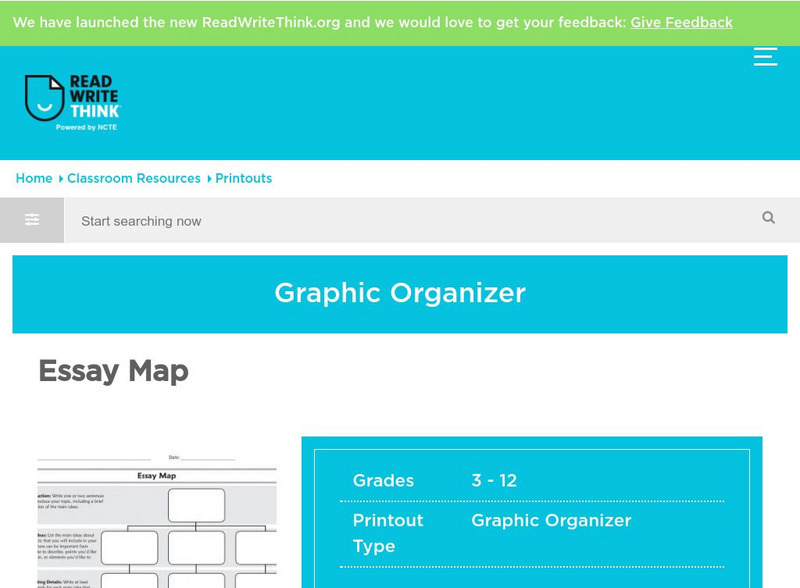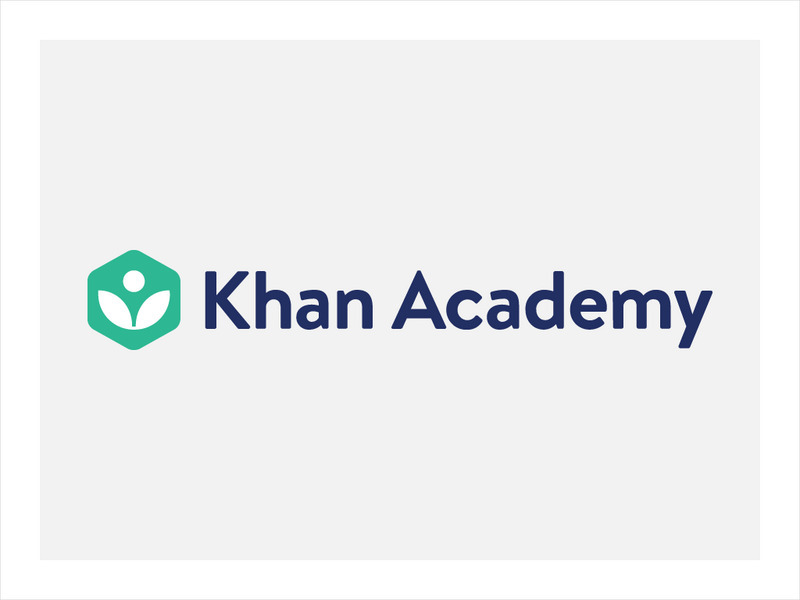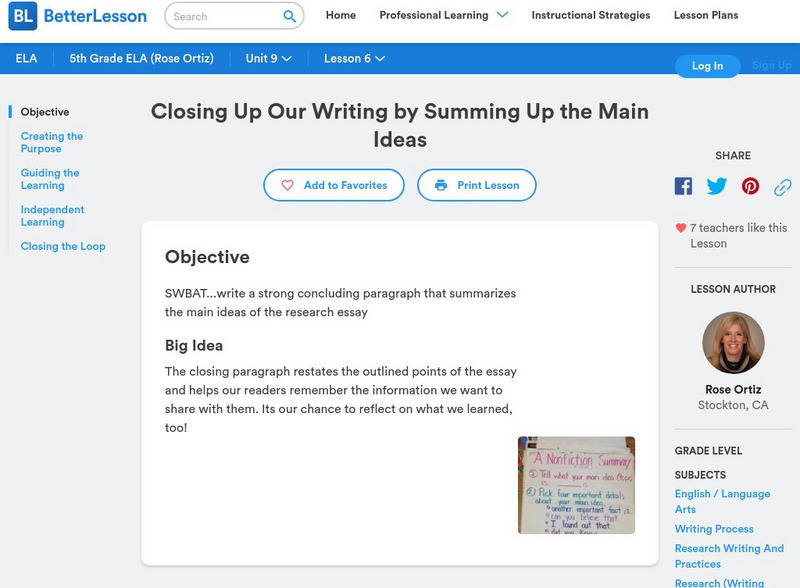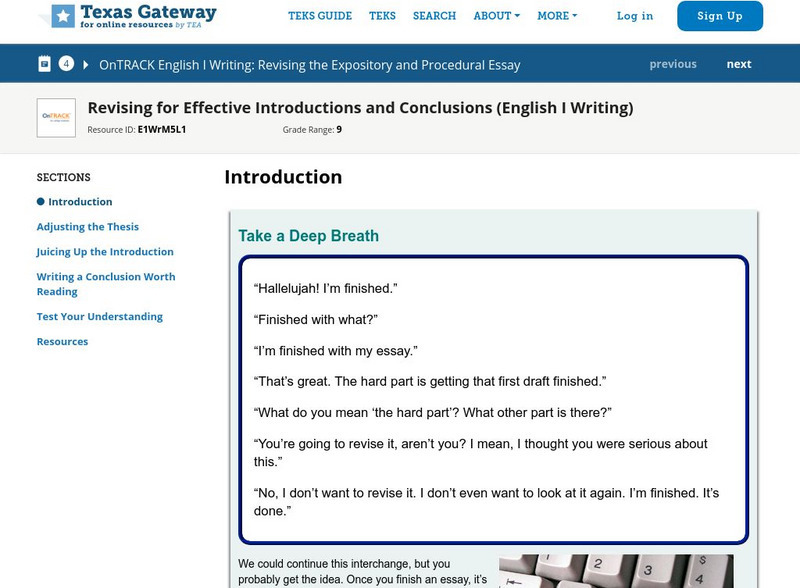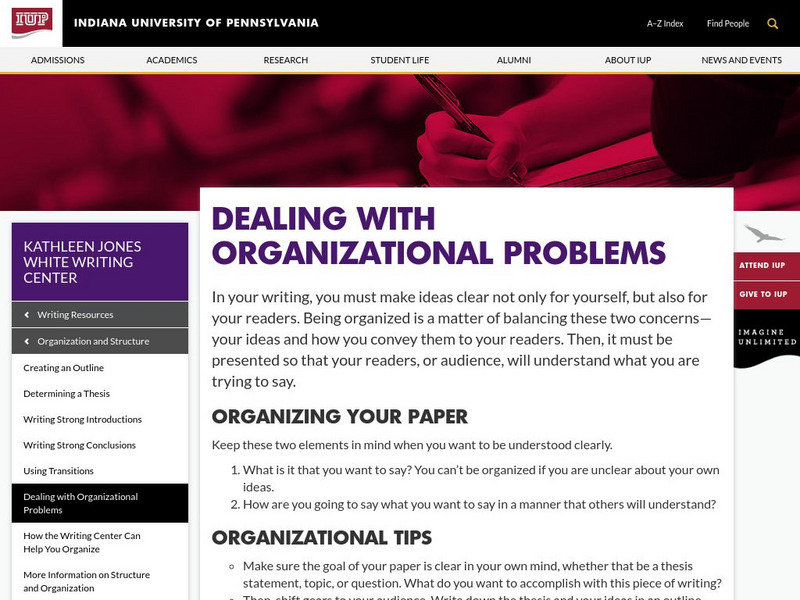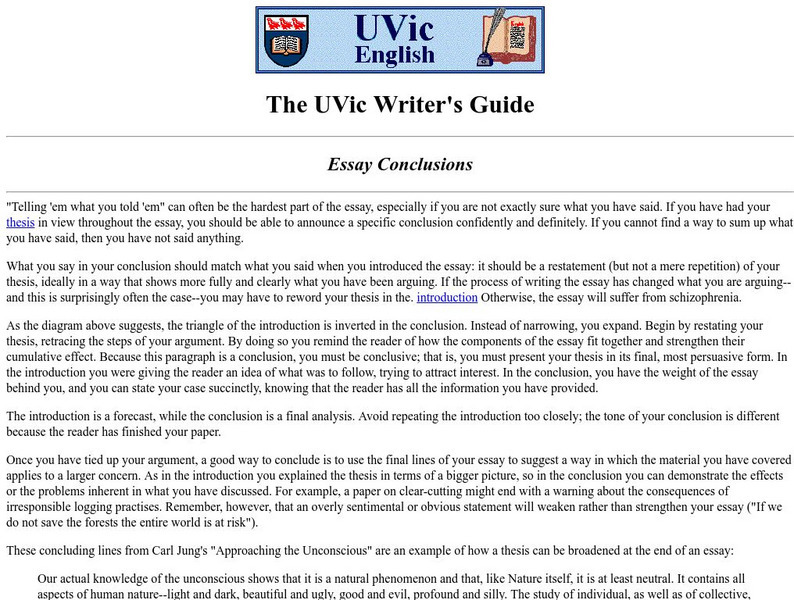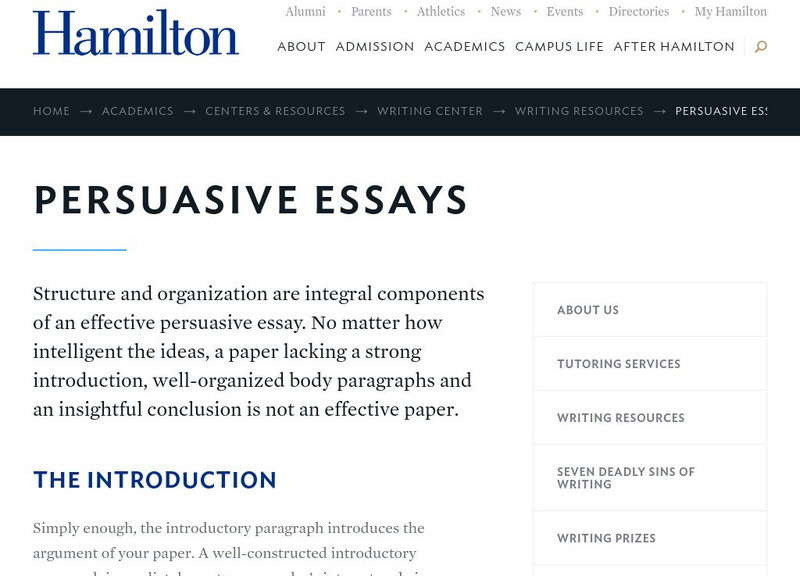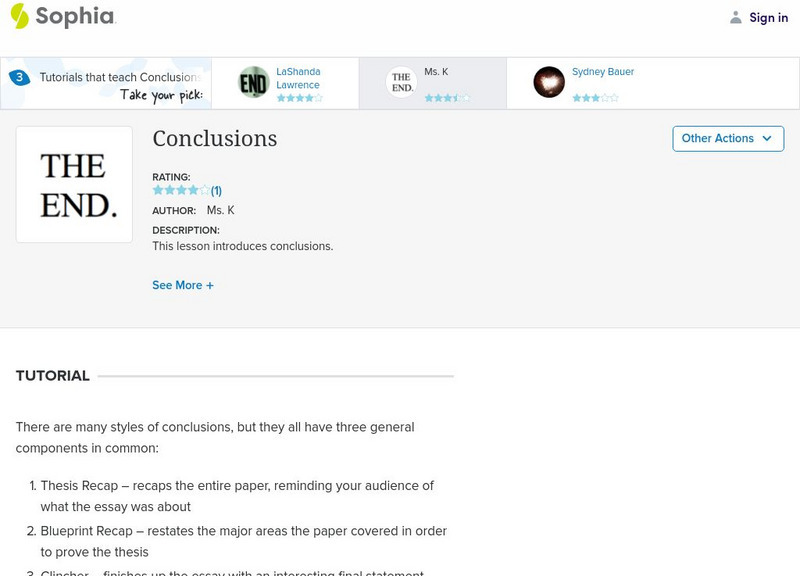E Reading Worksheets
E Reading Worksheets: Writing Narrative Essays
This article provides the components of narrative writing. The author emphasizes ways to make narrative writing better. W.9-10.3e Conclusion
Texas Education Agency
Texas Gateway: Revising Expository/procedural Essay: Introduction and Conclusion
[Accessible by TX Educators. Free Registration/Login Required] Learn strategies for revising an essay so that it contains an effective introduction, conclusion, and controlling idea or thesis.
Texas Education Agency
Texas Gateway: Write Expository Text That Is Logically Organized
[Accessible by TX Educators. Free Registration/Login Required] A learning module that teaches students how to write an organized expository text in five lessons: Introduction, The Type of Burger: The Controlling Idea, Toppings: The...
National Endowment for the Humanities
Neh: Edsit Ement: Introducing the Essay: Twain, Douglass and American Non Fiction
This lesson plan serves as an introduction to American literary non-fiction writing and focuses primarily on teaching some basic approaches to recognizing rhetorical strategies adopted for persuasive effect in essays and non-fiction. The...
Online Writing Lab at Purdue University
Purdue University Owl: Conclusions
This Purdue University OWL (Online Writing Lab) provides information related to writing a research paper. This guide explains to write a conclusions section.
Harvard University
Harvard University: Strategies for Essay Writing
This website provides a series of links to detailed information about each segment of how to write an academic essay from how to read the assignment to the final edits. Use the links to the right. W.9-10.1a claims/intro/org, W.9-10.2a...
Better Lesson
Better Lesson: Writing a Topic & Concluding Paragraph for the Essay
This lesson is a final step towards supporting young scholars to practice writing an informative/explanatory paragraph conveying complex ideas and presenting information clearly and accurately. Second-grade students can usually write a...
Harvard University
Harvard Univ.: Harvard College Writing Center: Ending the Essay: Conclusions
This resource teaches how to write a conclusion for an essay. Also includes a few pointers on how not to end one.
Lumen Learning
Lumen: Writing Skills: Conclusions
This lesson plan focuses on strategies for writing effective conclusions. It provides a list of strategies and a sample essay.
Sophia Learning
Sophia: Conclusions
A screencast lesson defining a conclusion and discussing how to write an effective conclusion. Students learn the traditional conclusion format as well as other formats that may better fit a writer's topic and purpose. Includes a section...
Joe Landsberger
Study Guides and Strategies: Expository Essays
This page has eight basic steps for writing expository essays: select topic, write the thesis, choose a method of development, organize, write topic sentences for body paragraph, write the body paragraphs, write an introduction, and...
ReadWriteThink
Read Write Think: Essay Map
A fillable essay map in PDF format with boxes for an introduction, main ideas, supporting details, and a conclusion. Directions on how to use this type of graphic organizer as well as lists of teaching ideas and related resources are...
National Endowment for the Humanities
Neh: Edsit Ement:charlotte Perkins Gilman's "The Yellow Wall Paper" Writing Women
A close reading of "The Yellow Wall-paper" employing the analysis of such literary concepts as setting, narrative style, symbol, and characterization. Students will write an essay discussing what the story suggests about middle-class...
Other
Indiana University of Pennsylvania: Writing Center: Writing Strong Conclusions
This Indiana University of Pennsylvania Writing Center site provides tips to writing a strong conclusion to an essay. The article discusses incorporating an anecdote, a basic summary, a startling summary, famous ideas, and/or hints to...
Other
Livingston: Basic Guide to Essay Writing
This tutorial lists and discusses the steps to writing a good essay and provides a downloadable guide. It also allows you to view a sample essay. W.11-12.2a Intro/Format
Khan Academy
Khan Academy: The Sat Essay: Analyzing a Passage
In this article, we will review a sample SAT Essay and give you some ideas of how you can approach writing a response to the prompt.
Better Lesson
Better Lesson: Closing Up Our Writing by Summing Up the Main Ideas
In this lesson, 5th graders will write a strong concluding paragraph that summarizes the main ideas of a research essay.
Texas Education Agency
Texas Gateway: Revising for Effective Introductions and Conclusions
[Accessible by TX Educators. Free Registration/Login Required] Learn strategies for evaluating and revising an introduction, conclusion, and controlling idea or thesis in an essay.
Other
Indiana University of Pennsylvania: Writing Center: Organizational Problems
This Indiana University of Pennsylvania Writing Center article provides tips to help students with essay organizational problems. The article suggests that students look at the essay's introduction, thesis, transitions, body paragraphs,...
Sophia Learning
Sophia: Paper Writing: Introduction, Body, Conclusion
This site shows students how to write an introduction, body, and conclusion to create a complete paper. Students see examples of two different types of introductions, get ideas for attention grabbers, gain understanding of the type of...
University of Victoria (Canada)
The U Vic Writer's Guide: Writing Essays: Essay Conclusions
Explains the purpose of the conclusion and how it relates to the thesis and introduction of the essay.
The Write Place
Literacy Education Online
Literacy Education Online (or LEO) is a great place to start if you need help with your writing. The homepage is organized around kinds of problems or questions you might have concerning your writing. Find your problem, click on the...
Other
Hamilton: Essentials of Effective Persuasive Essays
This resource provides good insight on how to structure a well organized effective persuasive essay.
Sophia Learning
Sophia: Conclusions: Lesson 3
This lesson introduces conclusions. It is 3 of 5 in the series titled "Conclusions."

